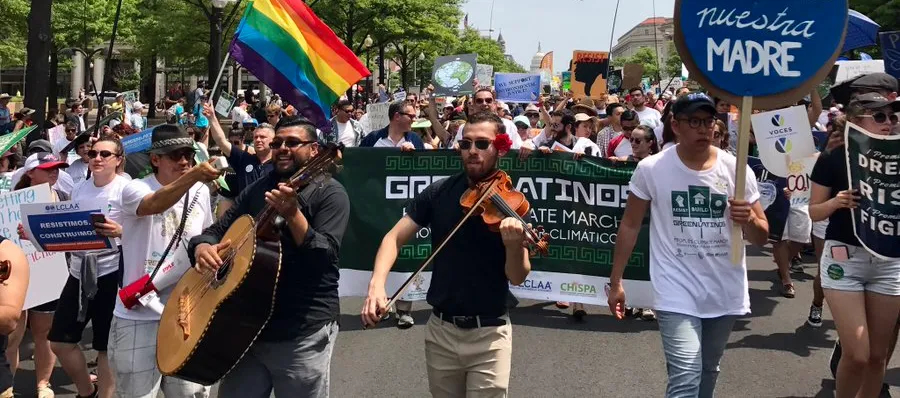
Close your eyes and picture what Cinco de Mayo looks like to you.
For me a memory comes to mind: my white vecinos wearing sombreros and drinking margaritas in a neighbor’s front yard. Did you imagine something similar? Since the 1970s, Cinco de Mayo has been popularized in the United States by the marketing schemes of food and beverage companies to sell their products under the guise of cultural celebration.
As we celebrate Hispanic Heritage Month and Latino Conservation Week, I invite you to imagine what authentic cultural celebration would look like on Cinco de Mayo if it reflected the spirit of this historical event.
Cinco de Mayo commemorates the victory at La Batalla de Puebla on May 5, 1862. On this day, an outnumbered and under-resourced force of trained and guerilla forces in defense of México defeated the French Empire at Puebla, México. This event had far-reaching international consequences–some historians posit that México’s victory at Puebla prevented the French from aiding the Confederates in the U.S. Civil War because they bought the Union time to cut off Confederate access to weapons from the west. Ultimately France did gain control of Puebla and more of México for a few years before they were ultimately defeated in 1867. In the motherland México, a lasting French Empire would have resulted in a complete diminishment of Mexican cultures and traditions as we know them today.
But when the Battle of Puebla was won, Mexican forces did more than protect their city. They protected their cultures, food, land, water, and air. Against all odds, people took action to resist oppression and retain control of their self-determination by retaining control of their natural resources. This is the spirit of Cinco de Mayo, and this is the message that the GreenLatinos comunidad is spreading as we endeavor to enhance Cinco de Mayo as a Day of Action where we reaffirm our commitment to protecting our public land and water from those who seek to drill, mine, pollute and otherwise destroy our cultural heritage and communities.
Nature is declining at rates that keep me up at night. A natural area the size of an entire football field in the U.S. is converted for some extractive purpose every 30 seconds. Everywhere you go the loss of nature is apparent in real time: the encroachment of suburbs on bird nesting habitat; the construction of prisons on wetlands; the channelizing of creeks and rivers; the expansions of warehouses and ports on coastal areas. Frontline communities are being hurt the worst by the impacts–rates of local pollution, nature deprivation, urban heat, flooding and other climate change driven public health crises are higher among communities of color across the nation.
Climate despair is real. It can feel overwhelming to resist these extractive forces. It is tolling to fight back against climate criminals that are polluting the very land, water and air that you depend on. But as a diverse and wide-reaching Latino/a/e community, we must draw from our own cultural values and historic moments like La Batalla de Puebla as inspiration en seguir luchando–even and especially if we are the underdog.
La Batalla de Puebla and other fights for self-determination across the Americas such as the Pueblo Revolt, the Haitian Revolution, the Cuban Revolution, the Jayuya Uprising, and the Sandinista Revolution are reminders that standing up against our oppressors in defense of our land, water and culture is always worth the fight no matter the odds. We should also be emboldened by the power and wisdom of our cultures as we take on these fights.
Hispanic heritage is diverse and identity is complex. But our cultural values stand the test of time. We respect our elders and we value intergenerational connection. This cultural adage is applicable as the U.S. Forest Service closes its public comment period for Old Growth Forest Conditions across our national forests this Friday September 20th. The Forest Service can respect our elders by giving high quality protection to our old and mature trees. To hold true to this cultural wisdom, the Forest Service should be compelled to not only protect and respect our oldest forest ecosystems, but also allow for younger forest stands to grow old and become our elders.
In celebration of Hispanic Heritage Month and defense of our land, water and cultures, please submit your comment to the Forest Service by Friday 9/20. Then close your eyes and imagine: what can the next Cinco de Mayo look like in your community as a Day of Action for our land, water and culture?
###
Olivia Juarez is the Public Land Program Director at GreenLatinos.

 Nevada
Nevada Texas
Texas Arizona
Arizona Colorado
Colorado Florida
Florida Maryland
Maryland